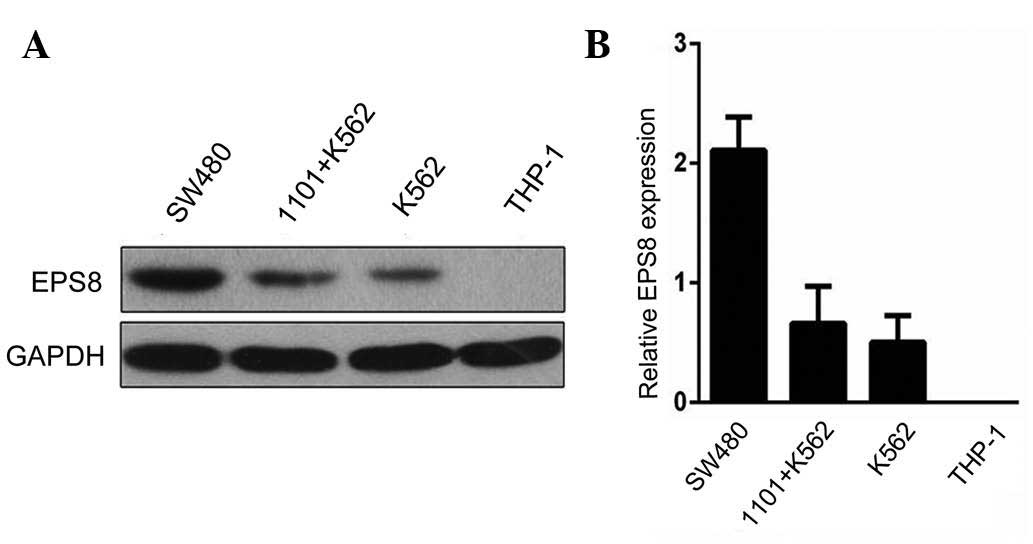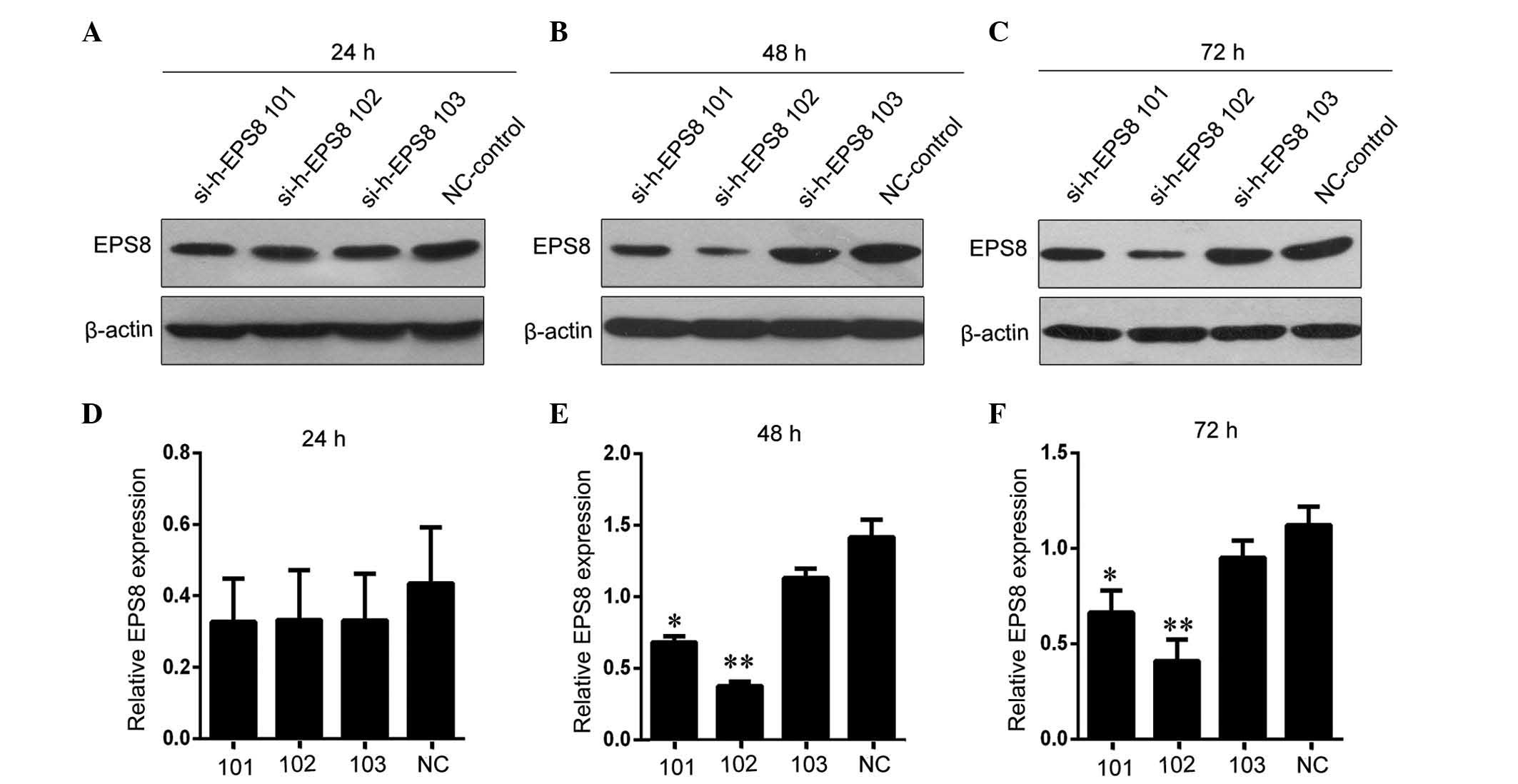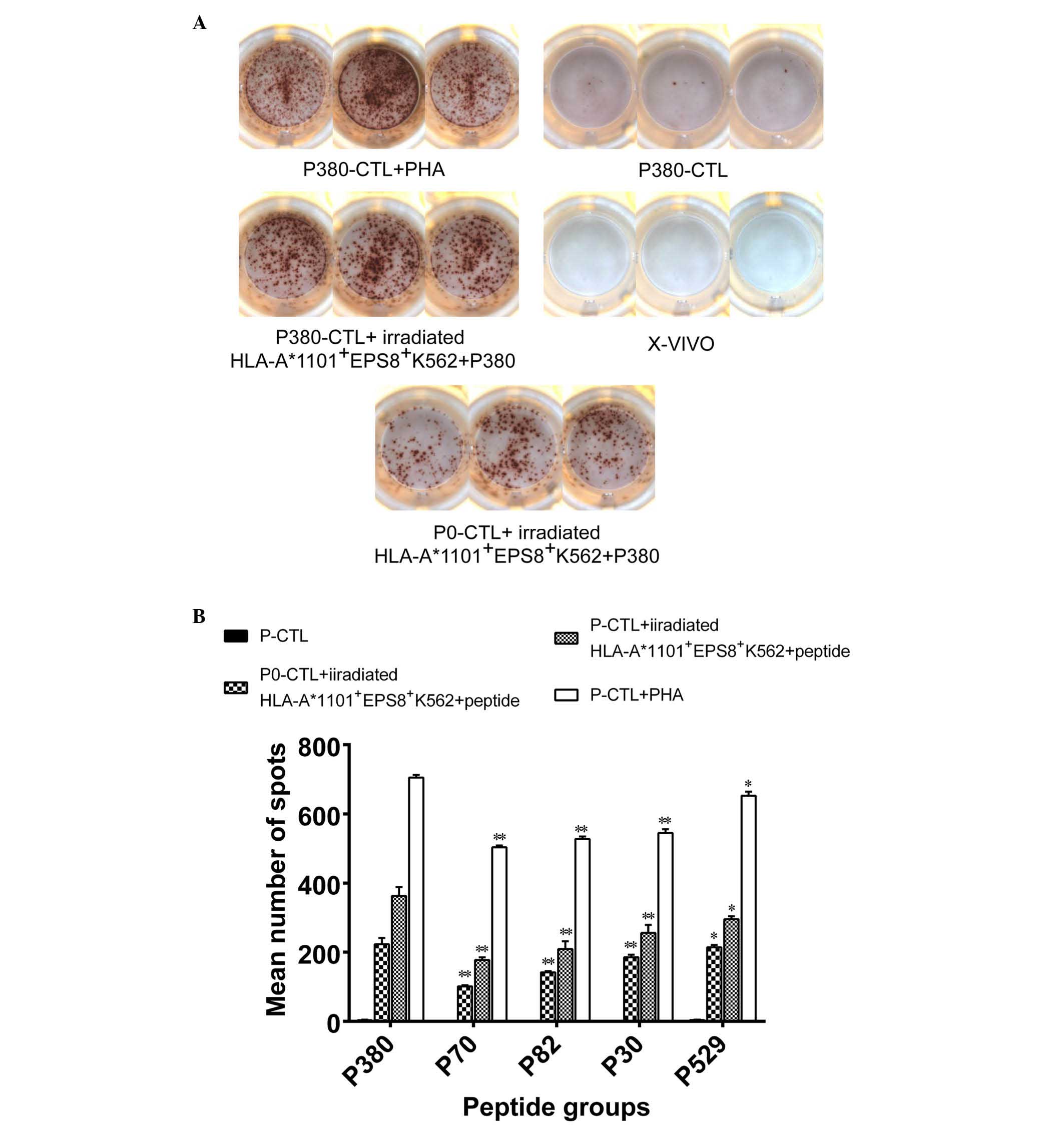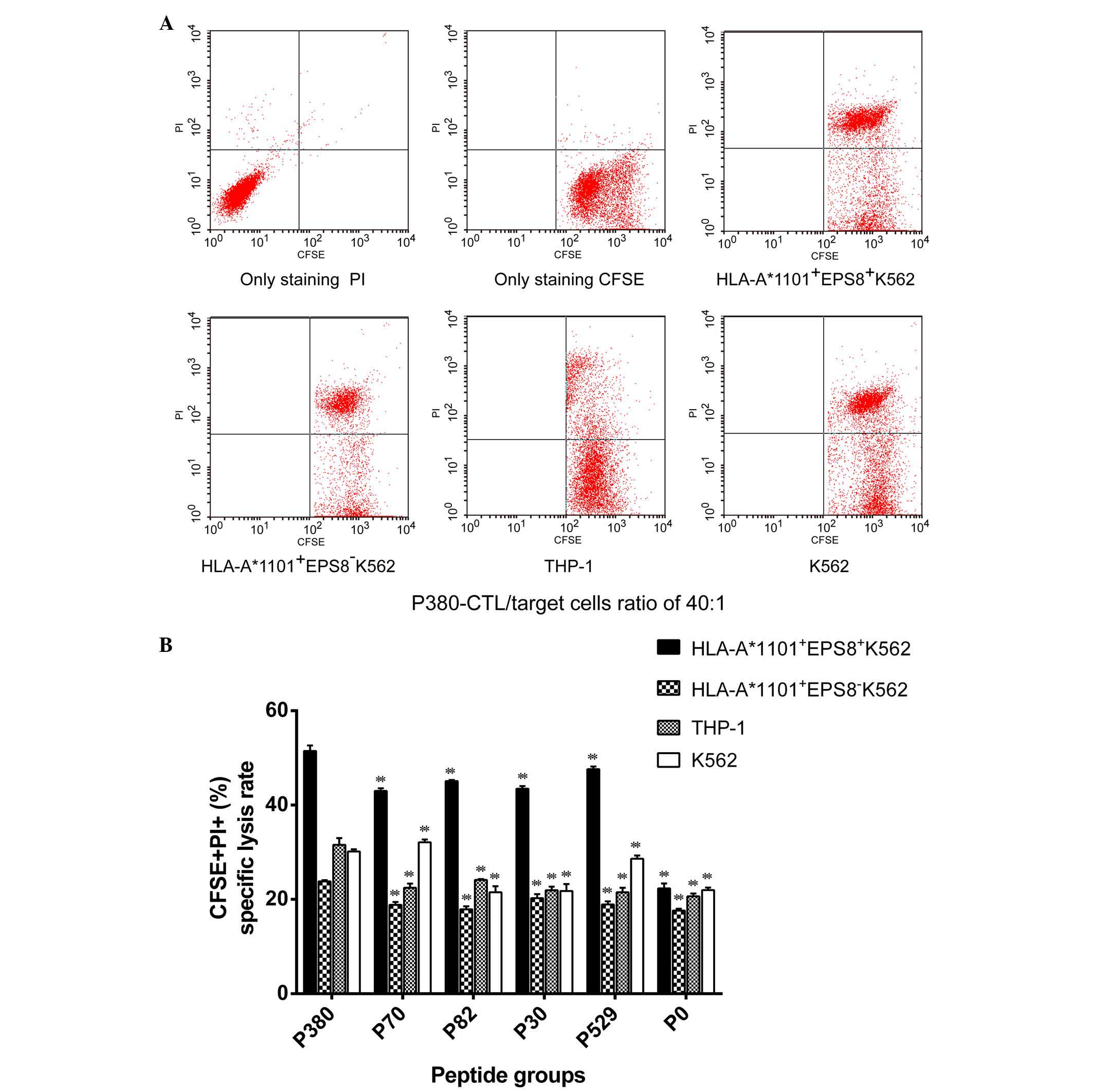|
1
|
Vardiman JW, Thiele J, Arber DA, Brunning
RD, Borowitz MJ, Porwit A, Harris NL, Le Beau MM,
Hellström-Lindberg E, Tefferi A and Bloomfield CD: The 2008
revision of the World Health Organization (WHO) classification of
myeloid neoplasms and acute leukemia: Rationale and important
changes. Blood. 114:937–951. 2009. View Article : Google Scholar : PubMed/NCBI
|
|
2
|
Fielding AK, Richards SM, Chopra R,
Lazarus HM, Litzow MR, Buck G, Durrant IJ, Luger SM, Marks DI,
Franklin IM, et al: Outcome of 609 adults after relapse of acute
lymphoblastic leukemia (ALL); an MRC UKALL12/ECOG 2993 study.
Blood. 109:944–950. 2007. View Article : Google Scholar : PubMed/NCBI
|
|
3
|
Schmid C, Labopin M, Nagler A,
Niederwieser D, Castagna L, Tabrizi R, Stadler M, Kuball J,
Cornelissen J, Vorlicek J, et al: Treatment, risk factors, and
outcome of adults with relapsed AML after reduced intensity
conditioning for allogeneic stem cell transplantation. Blood.
119:1599–1606. 2012. View Article : Google Scholar : PubMed/NCBI
|
|
4
|
Bocchia M, Defina M, Aprile L and
Sicuranza A: Peptide vaccines for hematological malignancies: A
missed promise? Int J Hematol. 99:107–116. 2014. View Article : Google Scholar : PubMed/NCBI
|
|
5
|
Mohamed YS, Dunnion D, Teobald I, Walewska
R and Browning MJ: In vitro evaluation of human hybrid cell lines
generated by fusion of B-lymphoblastoid cells and ex vivo tumour
cells as candidate vaccines for haematological malignancies.
Vaccine. 30:6578–6587. 2012. View Article : Google Scholar : PubMed/NCBI
|
|
6
|
Shah GL, Shune L, Purtill D, Devlin S,
Lauer E, Lubin M, Bhatt V, McElrath C, Kernan NA, Scaradavou A, et
al: Vaccine responses in adult and pediatric cord blood
transplantation recipients treated for hematologic malignancies.
Biol Blood Marrow Transplant. 21:2160–2166. 2015. View Article : Google Scholar : PubMed/NCBI
|
|
7
|
Melero I, Gaudernack G, Gerritsen W, Huber
C, Parmiani G, Scholl S, Thatcher N, Wagstaff J, Zielinski C,
Faulkner I and Mellstedt H: Therapeutic vaccines for cancer: An
overview of clinical trials. Nat Rev Clin Oncol. 11:509–524. 2014.
View Article : Google Scholar : PubMed/NCBI
|
|
8
|
Mellman I, Coukos G and Dranoff G: Cancer
immunotherapy comes of age. Nature. 480:480–489. 2011. View Article : Google Scholar : PubMed/NCBI
|
|
9
|
Fazioli F, Minichiello L, Matoska V,
Castagnino P, Miki T, Wong WT and Di Fiore PP: Eps8, a substrate
for the epidermal growth factor receptor kinase, enhances
EGF-dependent mitogenic signals. Embo J. 12:3799–3808.
1993.PubMed/NCBI
|
|
10
|
Matoskova B, Wong WT, Salcini AE, Pelicci
PG and Di Fiore PP: Constitutive phosphorylation of eps8 in tumor
cell lines: Relevance to malignant transformation. Mol Cell Biol.
15:3805–3812. 1995. View Article : Google Scholar : PubMed/NCBI
|
|
11
|
Chen YJ, Shen MR, Chen YJ, Maa MC and Leu
TH: Eps8 decreases chemosensitivity and affects survival of
cervical cancer patients. Mol Cancer Ther. 7:1376–1385. 2008.
View Article : Google Scholar : PubMed/NCBI
|
|
12
|
Griffith OL, Melck A, Jones SJ and Wiseman
SM: Meta-analysis and meta-review of thyroid cancer gene expression
profiling studies identifies important diagnostic biomarkers. J
Clin Oncol. 24:5043–5051. 2006. View Article : Google Scholar : PubMed/NCBI
|
|
13
|
Maa MC, Lee JC, Chen YJ, Chen YJ, Lee YC,
Wang ST, Huang CC, Chow NH and Leu TH: Eps8 facilitates cellular
growth and motility of colon cancer cells by increasing the
expression and activity of focal adhesion kinase. J Biol Chem.
282:19399–19409. 2007. View Article : Google Scholar : PubMed/NCBI
|
|
14
|
Wang H, Patel V, Miyazaki H, Gutkind JS
and Yeudall WA: Role for EPS8 in squamous carcinogenesis.
Carcinogenesis. 30:165–174. 2009. View Article : Google Scholar : PubMed/NCBI
|
|
15
|
Gorsic LK, Stark AL, Wheeler HE, Wong SS,
Im HK and Dolan ME: EPS8 inhibition increases cisplatin sensitivity
in lung cancer cells. PLoS One. 8:e822202013. View Article : Google Scholar : PubMed/NCBI
|
|
16
|
Wang L, Cai SH, Xiong WY, He YJ, Deng L
and Li YH: Real-time quantitative polymerase chain reaction assay
for detecting the eps8 gene in acute myeloid leukemia. Clin Lab.
59:1261–1269. 2013.PubMed/NCBI
|
|
17
|
He YJ, Zhou J, Zhao TF, Hu LS, Gan JY,
Deng L and Li Y: Eps8 vaccine exerts prophylactic antitumor effects
in a murine model: A novel vaccine for breast carcinoma. Mol Med
Rep. 8:662–668. 2013.PubMed/NCBI
|
|
18
|
Lee TD, Zhao TM, Mickey R, Sun YP, Lee G,
Song CX, Cheng DZ, Zhou S, Ding SQ, Cheng DX, et al: The
polymorphism of HLA antigens in the Chinese. Tissue Antigens.
32:188–208. 1988. View Article : Google Scholar : PubMed/NCBI
|
|
19
|
Lin M, Chu CC, Chang SL, Lee HL, Loo JH,
Akaza T, Juji T, Ohashi J and Tokunaga K: The origin of Minnan and
Hakka, the so-called ‘Taiwanese’, inferred by HLA study. Tissue
Antigens. 57:192–199. 2001. View Article : Google Scholar : PubMed/NCBI
|
|
20
|
Zha XF, Zhou YB, Yang LJ, Chen SH, Li B,
Yan XJ and Li YQ: Establishment of stable subline of K562 cells
expressing human leucocyte antigen a1101. Zhongguo Shi Yan Xue Ye
Xue Za Zhi. 19:1112–1116. 2011.(In Chinese). PubMed/NCBI
|
|
21
|
Cattaneo MG, Cappellini E and Vicentini
LM: Silencing of Eps8 blocks migration and invasion in human
glioblastoma cell lines. Exp Cell Res. 318:1901–1912. 2012.
View Article : Google Scholar : PubMed/NCBI
|
|
22
|
Fu J, Li L and Bouvier M: Adenovirus
E3-19K proteins of different serotypes and subgroups have similar,
yet distinct, immunomodulatory functions toward major
histocompatibility class I molecules. J Biol Chem. 286:17631–17639.
2011. View Article : Google Scholar : PubMed/NCBI
|
|
23
|
Parker KC, Bednarek MA and Coligan JE:
Scheme for ranking potential HLA-A2 binding peptides based on
independent binding of individual peptide side-chains. J Immunol.
152:163–175. 1994.PubMed/NCBI
|
|
24
|
Rammensee H, Bachmann J, Emmerich NP,
Bachor OA and Stevanović S: SYFPEITHI: Database for MHC ligands and
peptide motifs. Immunogenetics. 50:213–219. 1999. View Article : Google Scholar : PubMed/NCBI
|
|
25
|
Deenadayalan A, Maddineni P and Raja A:
Comparison of whole blood and PBMC assays for T-cell functional
analysis. BMC Res Notes. 6:1202013. View Article : Google Scholar : PubMed/NCBI
|
|
26
|
Doytchinova IA and Flower DR: Predicting
class I major histocompatibility complex (MHC) binders using
multivariate statistics: Comparison of discriminant analysis and
multiple linear regression. J Chem Inf Model. 47:234–238. 2007.
View Article : Google Scholar : PubMed/NCBI
|
|
27
|
Cunningham DL, Creese AJ, Auciello G,
Sweet SM, Tatar T, Rappoport JZ, Grant MM and Heath JK: Novel
binding partners and differentially regulated phosphorylation sites
clarify Eps8 as a multi-functional adaptor. PLoS One. 8:e615132013.
View Article : Google Scholar : PubMed/NCBI
|
|
28
|
Scita G, Nordstrom J, Carbone R, Tenca P,
Giardina G, Gutkind S, Bjarnegård M, Betsholtz C and Di Fiore PP:
EPS8 and E3B1 transduce signals from Ras to Rac. Nature.
401:290–293. 1999. View
Article : Google Scholar : PubMed/NCBI
|
|
29
|
Scita G, Tenca P, Areces LB, Tocchetti A,
Frittoli E, Giardina G, Ponzanelli I, Sini P, Innocenti M and Di
Fiore PP: An effector region in Eps8 is responsible for the
activation of the Rac-specific GEF activity of Sos-1 and for the
proper localization of the Rac-based actin-polymerizing machine. J
Cell Biol. 154:1031–1044. 2001. View Article : Google Scholar : PubMed/NCBI
|
|
30
|
Schoenherr C, Serrels B, Proby C,
Cunningham DL, Findlay JE, Baillie GS, Heath JK and Frame MC: Eps8
controls Src- and FAK-dependent phenotypes in squamous carcinoma
cells. J Cell Sci. 127:5303–5316. 2014. View Article : Google Scholar : PubMed/NCBI
|
|
31
|
Funato Y, Terabayashi T, Suenaga N, Seiki
M, Takenawa T and Miki H: IRSp53/Eps8 complex is important for
positive regulation of Rac and cancer cell motility/invasiveness.
Cancer Res. 64:5237–5244. 2004. View Article : Google Scholar : PubMed/NCBI
|
|
32
|
Innocenti M, Frittoli E, Ponzanelli I,
Falck JR, Brachmann SM, Di Fiore PP and Scita G: Phosphoinositide
3-kinase activates Rac by entering in a complex with Eps8, Abi1 and
Sos-1. J Cell Biol. 160:17–23. 2003. View Article : Google Scholar : PubMed/NCBI
|
|
33
|
Yao J, Weremowicz S, Feng B, Gentleman RC,
Marks JR, Gelman R, Brennan C and Polyak K: Combined cDNA array
comparative genomic hybridization and serial analysis of gene
expression analysis of breast tumor progression. Cancer Res.
66:4065–4078. 2006. View Article : Google Scholar : PubMed/NCBI
|
|
34
|
Yang TP, Chiou HL, Maa MC and Wang CJ:
Mithramycin inhibits human epithelial carcinoma cell proliferation
and migration involving downregulation of Eps8 expression. Chem
Biol Interact. 183:181–186. 2010. View Article : Google Scholar : PubMed/NCBI
|
|
35
|
Li Y, Zhou W, Du J, Jiang C, Xie X, Xue T
and He Y: Generation of cytotoxic T lymphocytes specific for native
or modified peptides derived from the epidermal growth factor
receptor pathway substrate 8 antigen. Cancer Immunol Immunother.
64:259–269. 2015. View Article : Google Scholar : PubMed/NCBI
|
|
36
|
Okuyama R, Aruga A, Hatori T, Takeda K and
Yamamoto M: Immunological respons es to a multi-peptide vaccine
targeting cancer-testis antigens and VEGFRs in advanced pancreatic
cancer patients. Oncoimmunology. 2:e270102013. View Article : Google Scholar : PubMed/NCBI
|
|
37
|
Williams MA and Bevan MJ: Effector and
memory CTL differentiation. Annu Rev Immunol. 25:171–192. 2007.
View Article : Google Scholar : PubMed/NCBI
|
|
38
|
Li R, Qian J, Zhang W, Fu W, Du J, Jiang
H, Zhang H, Zhang C, Xi H, Yi Q and Hou J: Human heat shock
protein-specific cytotoxic T lymphocytes display potent antitumour
immunity in multiple myeloma. Br J Haematol. 166:690–701. 2014.
View Article : Google Scholar : PubMed/NCBI
|



















